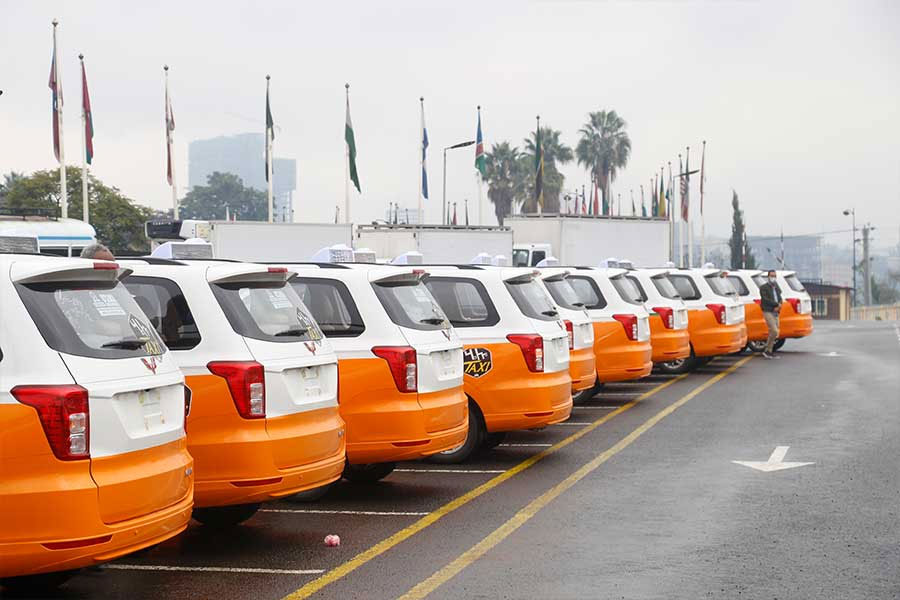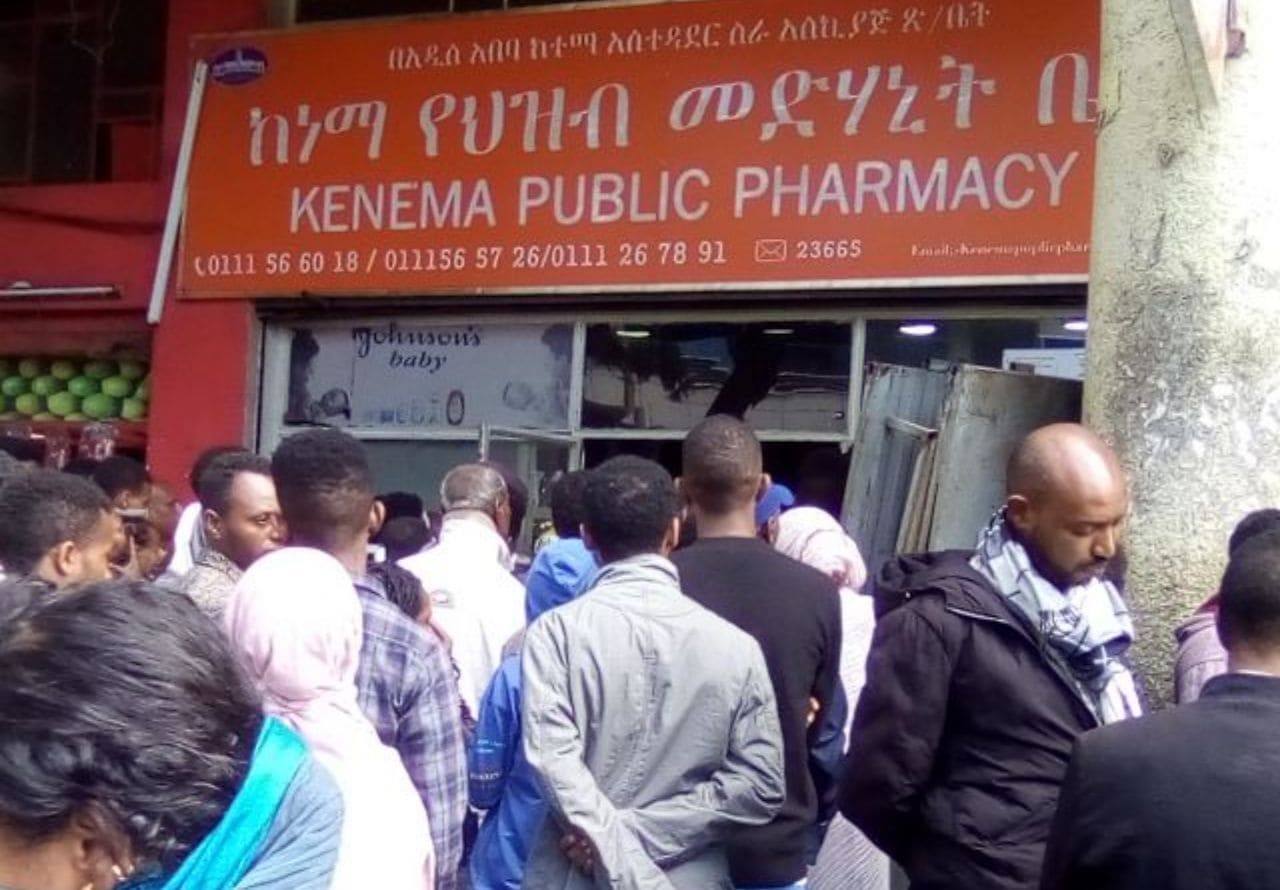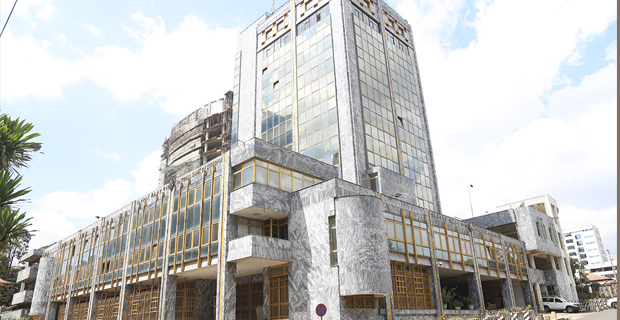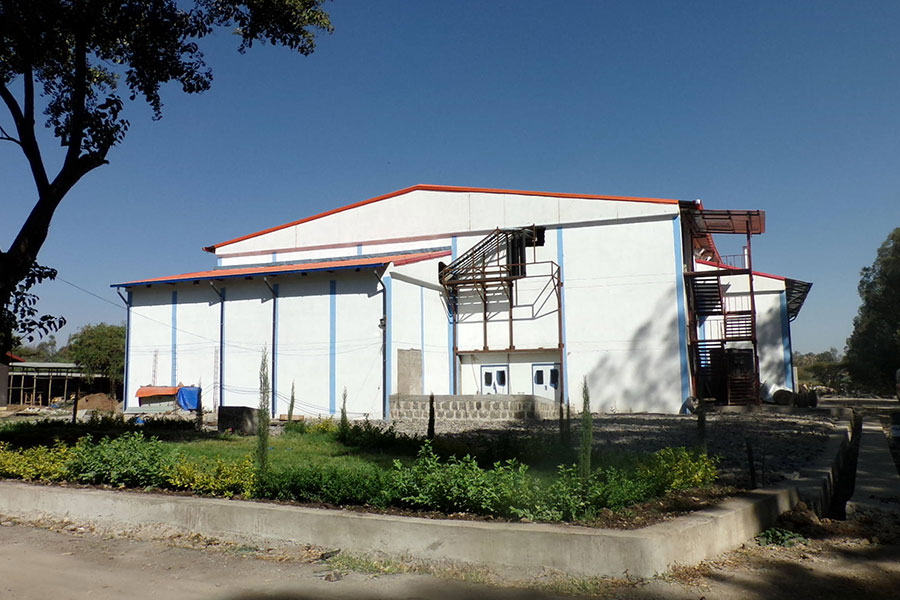
Fortune News | Mar 23,2019
The federal government has granted domestic tractor assemblers exemption from value-added tax (VAT), applying to assemblers importing knocked-down parts. Importers have been exempted from VAT applied to the sale of agricultural machinery since 2020.
Officials say the move is to accelerate agricultural mechanisation. The decision was made to create a level playing field for domestic assemblers and tractor importers, according to a letter signed by Eyob Tekalign (PhD), a state minister for Finance. The letters were issued to the Ministry of Revenues and the Customs Commission.
The decision comes a month after officials of the Ministry of Agriculture (MoA) and the Agricultural Transformation Institute (ATI) submitted a proposal to the Finance Ministry pushing for the exemption of assembled tractors. The initiative is part of a reform in place since 2020 to bolster agricultural mechanisation, according to Mandefro Nigussie (PhD), director-general of the Agricultural Transformation Institute.
Two years ago, the federal government waived taxes and duties on selected agricultural machinery, including tractors, combiners, generators, pumps, irrigation technologies and animal feed processing machinery. Although agricultural machinery use has grown in recent years, rural mechanisation remains low. Less than three percent of the land is ploughed with tractors. Close to 16,000 tractors are operational, and 93pc are imported.
The agriculture sector, providing a livelihood for 80pc of the population, is dominated by subsistence farming. Eighteen million rural households are farming 22.8 million hectares of land. Studies indicate that up to 90pc of farm work is performed through manual labour, with mechanisation accounting for less than 10pc.
Over 20 dealers import tractors and agricultural machinery.
Messey Ferguson, Landini, Class, SAME, John Deere and Case are the prominent tractor marks imported by companies such as Ries Engineering, the Motor & Engineering Company (MOENCO), Hagbes Plc, and Gedeb Engineering Plc. They are competing with a few domestic assemblers to attract farmers' interest.
Adama Agricultural Machinery Industry, a pioneer tractor assembler, will be one of the beneficiaries of the VAT exemption.
Incorporated in 1985, the company operates with an annual capacity of 1,000 tractors, assembled in its plant in Adama (Nazareth) town. It imports parts from China and Belarus and assembles tractors of varying engine capacity, from 50 to 180 horsepower (hp). A 50hp tractor sells for half a million Birr, while the 180hp model is sold for 3.1 million Br.
Adama's prices are relatively low because the tractors are assembled of parts imported six years ago, according to Eyasu Tilahun, general manager. The company has yet to make price adjustments.
“We're awaiting instructions," he said.
Re-established in 2010, the company operated as a subsidiary of the former Metals & Engineering Corporation (MetEC) until 2018. It is now under the state-owned Ethio-Engineering Group (EEG).
Eyasu believes the lifting of VAT is the right move but questions the extent of its impact.
“Machinery should cost less to make it more accessible to farmers," he said.
Unions, cooperatives and farmers are the major clients of tractor assemblers.
Yerer Farmers' Union comprises 119 cooperatives and 91,000 farmers in four weredas of Bishoftu, 60Km southeast of Addis Abeba. It owns three tractors, each costing 3.1 million Br.
“Close to 200 farmers use the tractors,” said Tadesse Hailu, manager of the Union.
One of the farmers who rents tractors from the Union is Zenebe Eshetu. He had been farming teff and wheat on 0.25hct of land until 2017, harvesting 20qtl of grain annually. After the Union made the tractors available, Zenebe began to rent additional land and cultivate crops, deploying machinery.
“Because I use tractors now, I rent up to three hectares of land,” he said.
Zenebe pays 3,200 Br a day in rental fees for using a tractor.
“My productivity has more than tripled since I started using tractors,” he told Fortune.
Kegna Agricultural Machinery Manufacturing & General Trading is another assembler incorporated in 2017 as a subsidiary of Gedeb Engineering Plc. Gedeb was incorporated in 2006 as an exclusive dealer of John Deere Agricultural Machineries. Having 75hp, the John Deere tractors have a unit price of 813,000 Br.
The Oromia Regional State bought 350 tractors assembled by Kegna, valued at 285 million Br, and distributed to the youth groups. The former Oromia Savings & Credit Institution, now Siinqee Bank, financed the tractors through a credit arrangement. Kegna has assembled 450 John Deere tractors thus far.
Incorporated two decades ago, Amio Engineering had been in the tractor import business until two years ago, when the company erected an assembly plant in the Akaki Qaliti District. The plant can assemble 300 tractors a year. Retail prices for Amio's tractors are between 200,000 Br and 3.5 million Br.
A forex crunch to import the parts to assemble the tractors is a significant challenge, according to Ibrahim Yasin, general manager of Amio.
Despite the growing use of tractors for farming and the rise in importers and assemblers, the small land size for individual farmers has limited demand. An average landholding by Ethiopia's farmers is 0.84hct, less than a hectare experts see as sufficient for mechanised farming. An agricultural economist who has been teaching at a public university for 20 years observed that the size of the plots constrains the use of agricultural machinery.
“The absence of economies of scale means the use of machinery is not cost-effective for small-holder farmers," said the economist.
Subsistence farmers continue to use animals for ploughing, threshing, and transportation.
Officials claim this is changing following the growing adaptation of cluster farming, which allows farmers with adjacent farmlands to undertake farming practices, from ploughing to harvesting, at the same time.
Around 44,000hct of farmlands are cultivated through cluster farming.
PUBLISHED ON
May 01,2022 [ VOL
23 , NO
1148]

Fortune News | Mar 23,2019

Radar | Feb 08,2020

Radar | Oct 09,2021

Fortune News | Oct 16,2021

Covid-19 | Mar 21,2020

Fortune News | Jan 23,2021

Life Matters | Jun 10,2023

Fortune News | Jan 12,2019

Radar | Sep 10,2021

Fortune News | Jun 29,2024

Dec 22 , 2024 . By TIZITA SHEWAFERAW
Charged with transforming colossal state-owned enterprises into modern and competitiv...

Aug 18 , 2024 . By AKSAH ITALO
Although predictable Yonas Zerihun's job in the ride-hailing service is not immune to...

Jul 28 , 2024 . By TIZITA SHEWAFERAW
Unhabitual, perhaps too many, Samuel Gebreyohannes, 38, used to occasionally enjoy a couple of beers at breakfast. However, he recently swit...

Jul 13 , 2024 . By AKSAH ITALO
Investors who rely on tractors, trucks, and field vehicles for commuting, transporting commodities, and f...

Oct 25 , 2025
The regulatory machinery is on overdrive. In only two years, no fewer than 35 new pro...

Oct 18 , 2025
The political establishment, notably the ruling party and its top brass, has become p...

Oct 11 , 2025
Ladislas Farago, a roving Associated Press (AP) correspondent, arrived in Ethiopia in...

Oct 4 , 2025
Eyob Tekalegn (PhD) had been in the Governor's chair for only weeks when, on Septembe...